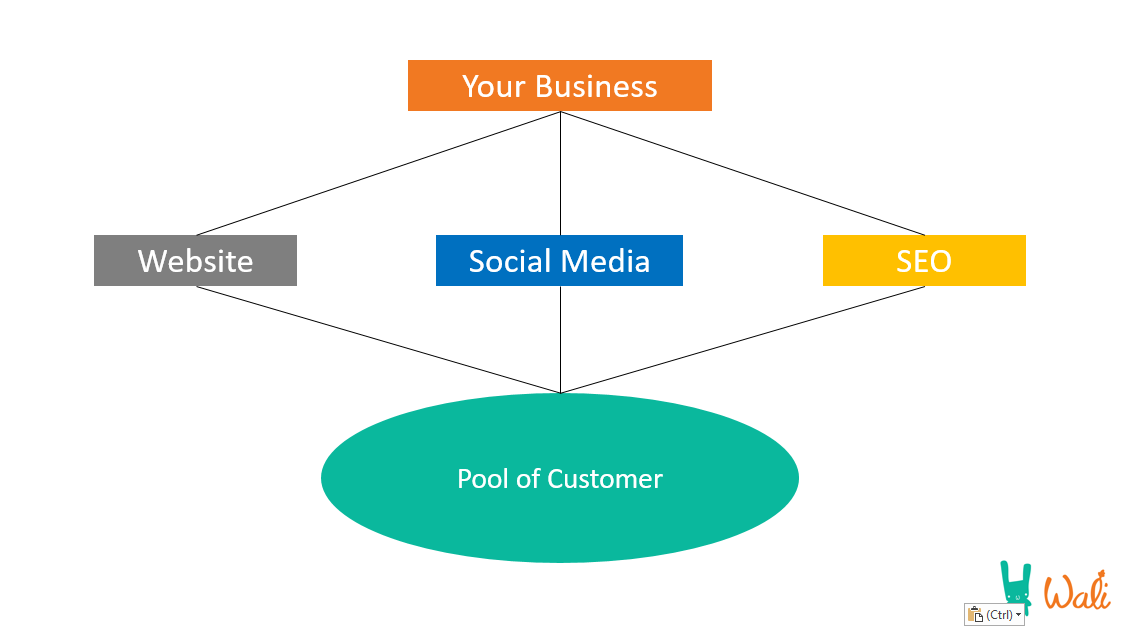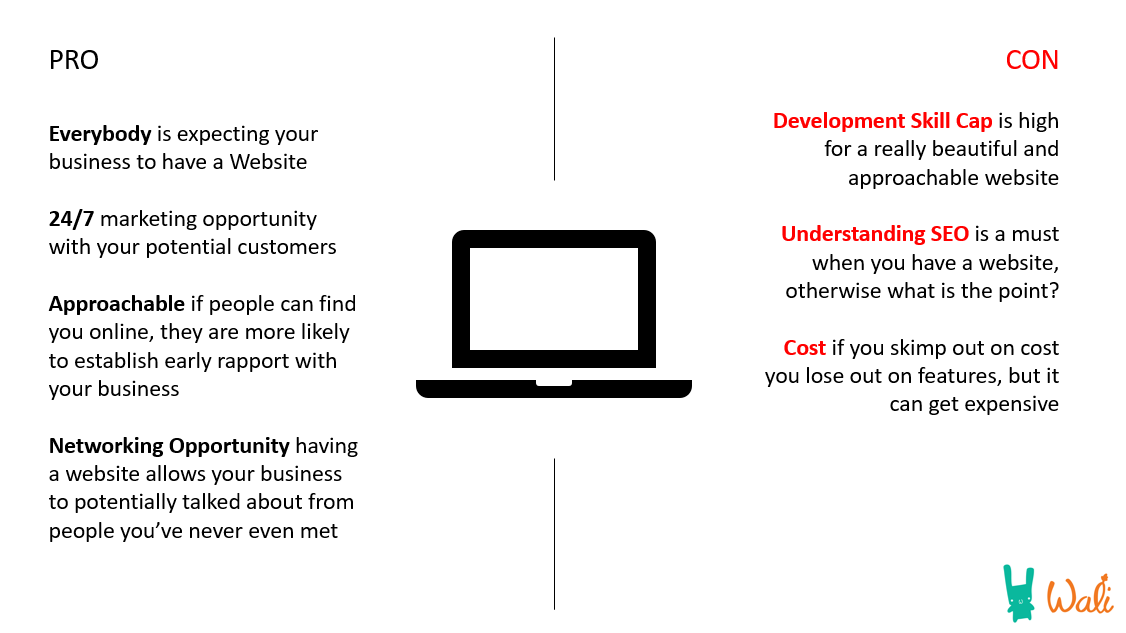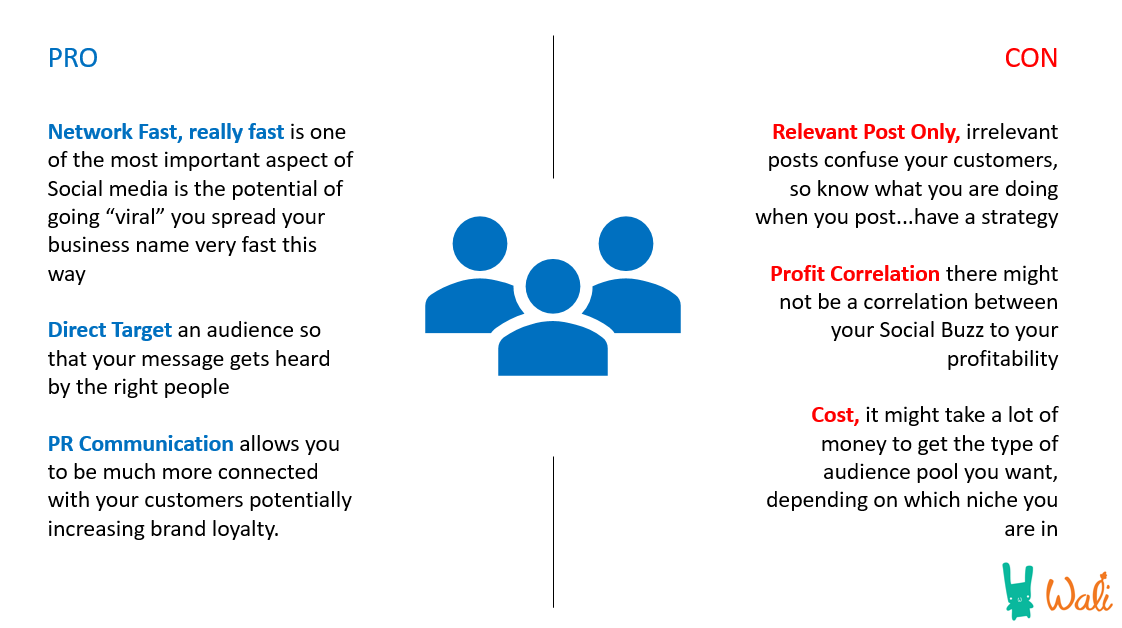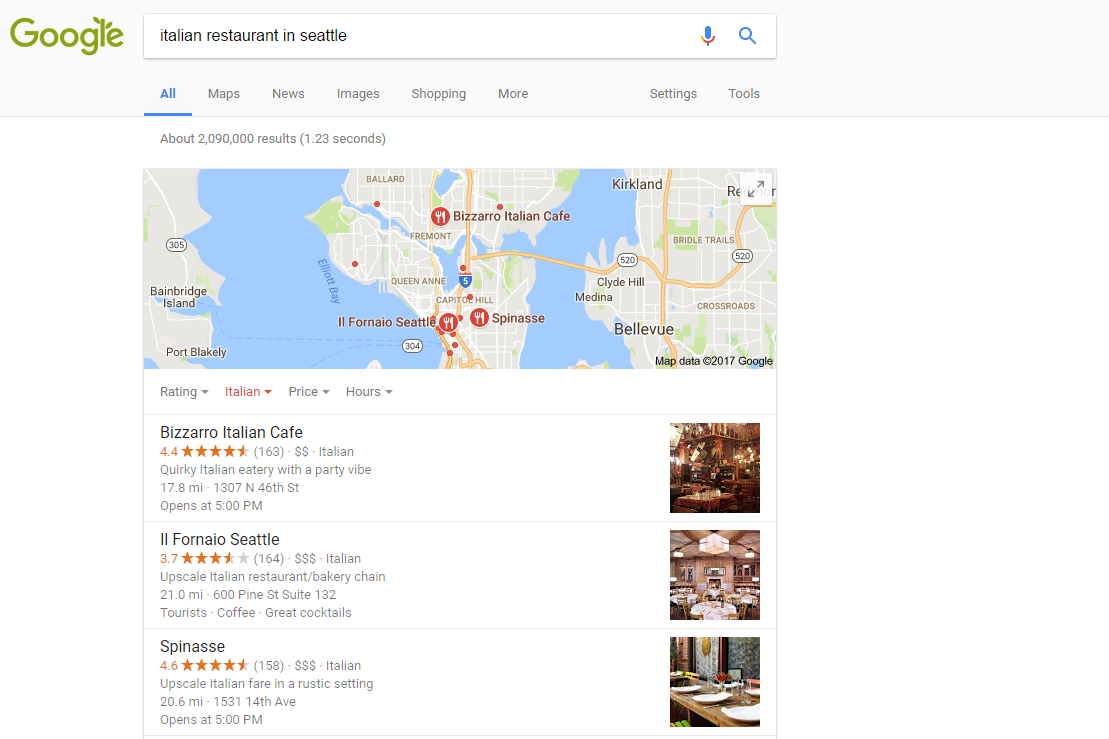When it comes to digital marketing channels, there sure are a lot of ways for your business to get customers nowadays. For the purpose of focus of this post, we’re going to center our position on three digital channels: Website, Social Media, and SEO. We’re focusing on these three because when we talk to small businesses (including our clients) these three seems to bubble up as the top of mind for many small businesses struggling to understand digital marketing.

All three digital categories mentioned all serve the same purpose; allowing your customers to find YOU! Just like the traditional method, there are many channels/or ways to reach to your target audiences. But for us here at Wali, it is not a one size fit all methodology. In fact, when working with a lot of small businesses we found that there are niche solutions applicable to each individual companies. We discovered that different companies absolutely need to have a website, whereas others don’t.
“YOUR Business needs to find the most impactful digital channel rather than just going with the flow with what is the norm of the market.”
Others need a social media page to promote their product, but others surprisingly don’t. What we’re saying essentially is…Just because digital marketing is the norm of the land nowadays, YOUR Business needs to find the most impactful digital channel rather than just going with the flow with what is the standard of the market.
Let’s dive down on the strengths and weaknesses of each channel.
Website

In a perfect world, every business will have a website
One of the biggest pros that we could think of for having a website is the fact that it is a 24/7 marketing opportunity for your business. But here’s the thing, does everybody need to have a website? In a perfect world, yes! But we don’t live a perfect world. We live in a world where Small businesses like yours have a budget, and you have to figure out how to make that budget have the most impact on your marketing efforts.
In our experience, the businesses that absolutely need a website are businesses that are selling a service, or a niche product that customers generally don’t have an understanding of.
——————————————–
For those who are in service: if you are in a service type business, a website in our opinion is quite impactful for you. The reason being is because you need to establish a rapport with you customers. You need to define who you are, and what service you can do to assist them in whatever it is you are in business for. Additionally, they need to understand you first before they approach you.
So for example, if you’re running a small accounting firm, customers need to understand what you do for them accounting wise, maybe that’s tax maybe its business accounting. And you need to establish yourself as a professional who knows what they are doing and a website is definitely a place to do that where you control your own narrative.
——————————————–
For those with a niche product: if your product is a niche product/a proprietary product that is positioned differently than what is out there, you need a place to showcase that specialness of your product. Again, it’s your website so it’s your narrative.
Even if for example you have a restaurant business. A website might be necessary because you need to show how your food is different than your competitors, and how your restaurant should be the choice for customers. Whether you have an elegant 4-star establishment or a diner’s experience restaurant.
——————————————–
For those who we found might not need a website: in our experience, businesses that run a high frequent customer volume or sells a product that can be easily understood by the average customers may not need a website. Why? Because one everybody knows what you sell.
For example, if you market yourself as a fast food burger joint, then there is less of a need for your customer to understand you. What they do understand is that you sell burgers and they want to see a menu because they want to see which kind of burgers you sell. This requires not a website but rather a third party site like Yelp, or Singleplatform to showcase your menu, or when you open etc. (We’ll talk more about this in the SEO section)
Social Media

Social Media is a must, but how much should you spend on it?
There is no argument from us here at Wali that Social Media is a must for any business at this time. But! If you want to increase your presence on any of the Social platforms (Facebook, Insta, Twitter etc.) you’re going to have to fork over some money; so the question here is not if your business should use Social Media it’s how much money you should use.
For us, it boils down to this question: How big of an audience can your small business handle?
——————————————–
Because getting the audience on Social Media is easy. Post with a relevant strategy and put a little bit of money (probably around ~$1.5-3 grand) and you could have around 200k followers by the end six months if you know what you’re doing (even more if you really know what you’re doing.)
But here’s the thing, if your business cannot afford to sustain 200k followers should you drop $1-3 grand getting those followers? Because now that you’ve gotten followers you need to keep them around with relevant content so that your channels can exponentially increase and that cost money, effort, and time.
This means more man hour to create content, more monitoring, and most importantly, being absolutely responsive on Social Media when one of your 200k followers message you. An unresponsive brand is a dead brand and you will see those new audience disappear one by one.
In our experience businesses that really knows what they are doing are attentive to the audience that they already have, because, at the end of the day, it is more important that your bottom line is fatter rather than your audience on Social Media (some digital marketers will flame us for that one…) We’ve found that spending on Social Media may not correlate to higher profitability for the business, or at least sustainable profitability which is why we encourage a 1% rule.
We believe that spending only 1% of your revenue on Social Media is a healthy budget to increase your Social presence:
Spend 1% of revenue to get 100 new audiences (any less Audience than you’re over budget)
The reason for this 1% rule is so that your business doesn’t bite off more than it could chew. There is such a thing as an unsustainable Social Media presence. Lots of digital marketers focus on getting more audience but fail to take into account of business capabilities after getting that audience. Our advice just is mindful of what you can handle. Social Media makes things easier to network, but keeping those networks is a whole other ball game.
SEO

SEO have different execution style: no single format for this avenue!
Let’s be clear about one thing first SEO does not have to include Website! The reason why we say this is because there are so many ways to be found online that do not have to include having a website. As we mentioned above third party website like Yelp and Singleplatform is another way to be found without having a website.
What we mean is this:


Google business allows your business to be found online and ready with a full profile list for you to fill in. This allows you to be “found” without having to actually have a website if you don’t want to. (Is one example)
SEO is integral for people finding you. Whether you’re a restaurant or a fast food joint, people need to be able to find you in order to be a customer at your restaurant. In our opinion SEO, like Social Media is a must. But unlike Social Media, there are a lot of creative ways for your business to be found without having the need to ever invest in an actual SEO infrastructure.
Which is why there are a lot of successful third party websites around.
So what we are telling you, is that you can do SEO but the traditional route isn’t the clearest route.
If you are going digital, just know that it is not a simple as it looks on the surface.
The most obvious solutions may not be the solution that you need because digital marketing runs wide and deep at the same time. A thorough investigation and understanding of your options when you do digital marketing will allow your business to thrive!
Have a good day Y’all enjoy that sun out there!
![]()
